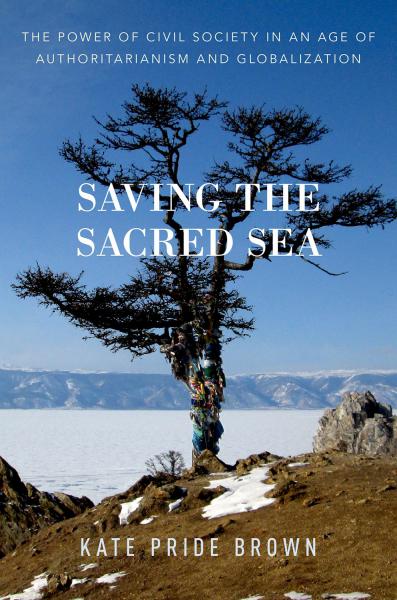Kate Pride Brown

Education: B.A., Liberal Arts, Sarah Lawrence College; M.A., Sociology, Vanderbilt University; Ph.D., Sociology, Vanderbilt University
Kate Pride Brown is Assistant Professor of School of History and Sociology at Georgia Institute of Technology.
When did you first develop an interest in Slavic, East European and Eurasian Studies?
I was four years old when I discovered some matryoshki on a neighbor’s bookshelf; that might be where it all began! More likely, my interest arose because, growing up in the late 1980s, my childhood was punctuated with the momentous events of the late Cold War – perestroika, the fall of the Berlin Wall, the coup against Gorbachev, and the dissolution of the USSR. As a child, I noticed that something very interesting was going on over in that part of the world, and I wanted to know more about it. Once my interest was piqued, it never faded.
How have your interests changed since then?
At some level, my youthful interest in Russia was partly as a means to understand my own society by comparison. In high school, I questioned capitalism and consumerism, and the Soviet experience provided me with the possibility to encounter radical difference. Because of my early interest in Russian history and society, I was never able to accept my own culture as an immutable given. In many ways, it primed me to become a sociologist, investigating the human experience as a social construction. Now, as a scholar, I am interested in Russia for its own sake, for what it empirically is, and not for what I might have needed it to be as a malcontent teenager. However, I still think that its divergent experience provides an important point of comparison when assessing the validity of sociological claims and ideas, particularly those originating in Western Europe and the United States.
What is your current research/work project?
My recently published book, Saving the Sacred Sea: The Power of Civil Society in an Age of Authoritarianism and Globalization (Oxford University Press, 2018), is an ethnography of local environmental groups in Irkutsk, Russia, as they seek to preserve Lake Baikal: the largest, deepest, and oldest lake on Earth. Their efforts span the Soviet/post-Soviet divide and thus provide insight into the nature of civil society beyond the norms of the democratic West. As Russia joined the globalized era following the fall of the USSR, activists similarly reached across borders to transnational partners offering strength and support. But they were not the only ones learning from global interactions. State leaders and captains of industry also used the global scale to augment their own positions. Even the very local, place-based environmental activities around Lake Baikal are indelibly imprinted by the global scale. They also illustrate the power dynamics between the state, capitalist enterprise and civil society, offering a new theoretical lens on the nature of civil society itself.
What do you value about your ASEEES membership?
Only a small number of my domestic disciplinary colleagues are familiar with my geographical region of study. It is rewarding and refreshing to be part of a group of experts, deeply familiar with my case – even if they do not always share my discipline’s theoretical or methodological perspective. And the opportunity to learn from other disciplinary approaches to the same regional case has been invaluable for me, spurring new and creative ways of thinking by virtue of the multiple lenses applied.
Besides your professional work, what other interests and/or hobbies do you enjoy?
I love to dance, especially ballet. I even had the opportunity to study ballet in Russia, which was amazing. I am also passionate about the natural world and enjoy backpacking, hiking, canoeing, and (of course) bicycling!
